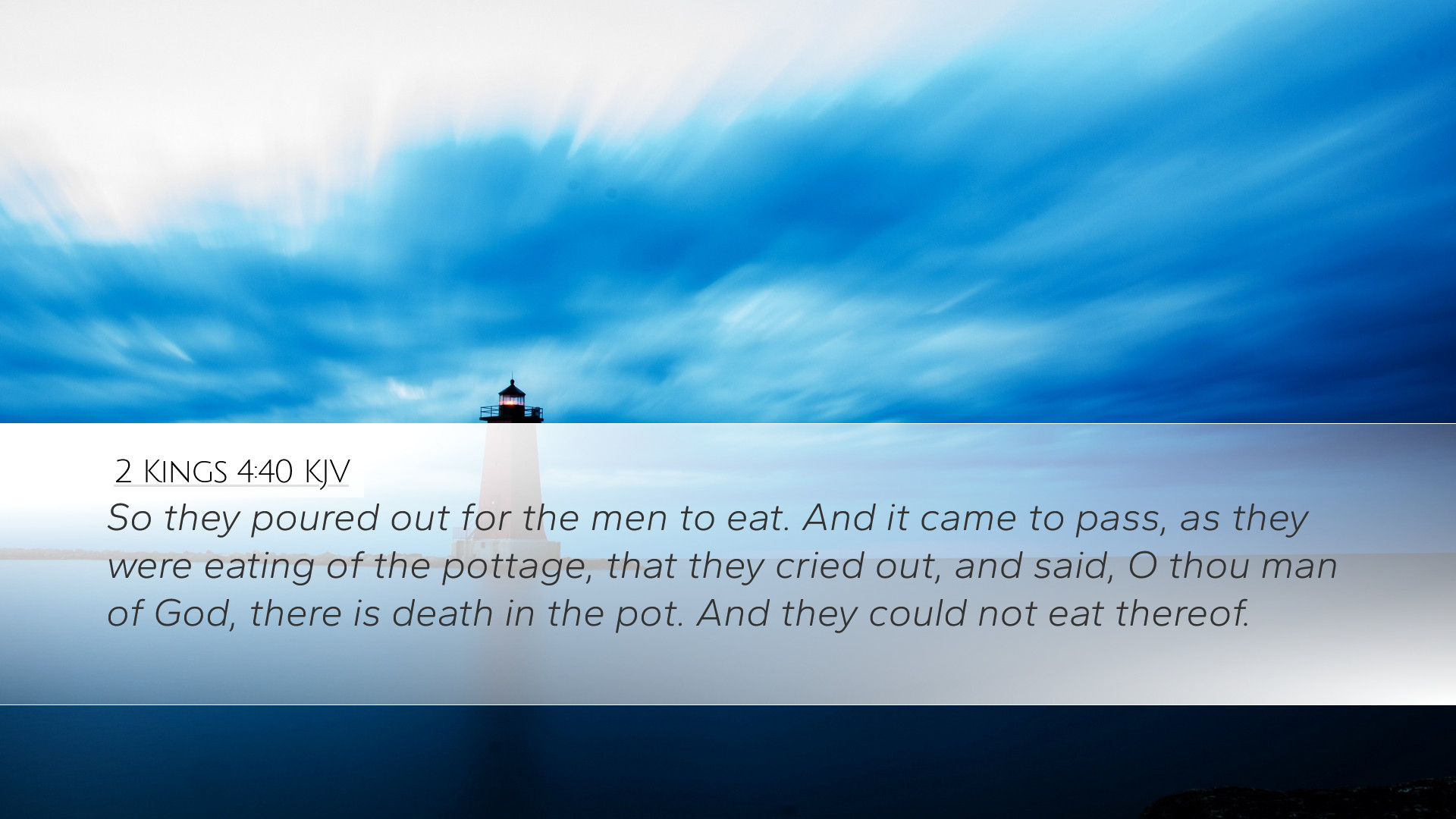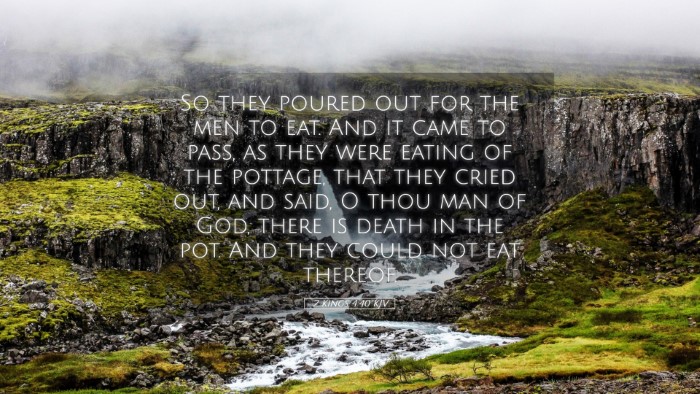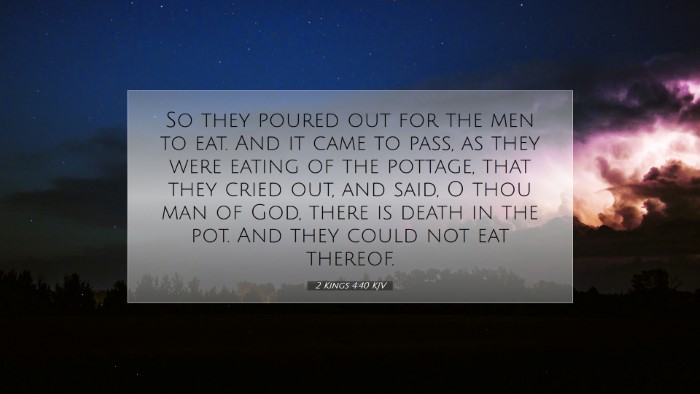Commentary on 2 Kings 4:40
Bible Verse: "So they poured it out for the men to eat. But while they were eating some of the stew, they cried out, 'Man of God, there is death in the pot!' And they could not eat it."
Contextual Background
This narrative is set in the historical context of the prophet Elisha's ministry during a time of drought and famine affecting Israel. It continues to illustrate the prophetic office's role, as Elisha exemplifies how God provides and cares for His people amidst dire struggles.
Interpretative Insights
1. The Setting of the Miracle
In this passage, we find a group of prophets gathered to share a meal. They sought nourishment in the midst of a societal and spiritual famine, reflecting the dire needs of the people. According to Matthew Henry, this group of sons of the prophets are in need of sustenance, mirroring the spiritual sustenance that Elisha provided through his prophetic ministry.
2. The Source of Trouble
The narrative reveals the unfortunate consequence of misjudgment in gathering food. The unknowing inclusion of wild plants in the stew symbolizes the dangers of relying on worldly wisdom rather than divine guidance. Albert Barnes emphasizes that the stew represents the danger present in taking spiritual truths lightly, resulting in 'death in the pot,' a profound metaphor for spiritual corruption.
3. The Cry for Help
The exclamation, "Man of God, there is death in the pot!" signifies an urgent awareness of danger. The prophets recognize the peril in their meal, indicating a deep awareness of their vulnerability. Adam Clarke explains that this urgent plea underlines the importance of discernment in ministry and among the believers. This incident illustrates that, despite their intentions to care for one another, spiritual sufficiency is only found through prophetic guidance.
Symbolic Interpretations
1. The Pot as a Symbol
The pot itself can be viewed as a symbol of the human heart or assembly where both good and evil may reside. Just as the prophets unknowingly included poison in their meal, so too can churches unwittingly harbor harmful influences if they deviate from God's word. Henry suggests that the lessons learned from this incident emphasize the need for the church to discern between what is spiritually nourishing and what is not.
2. Elisha's Role as a Mediator
Elisha’s response to the situation provides insight into the role of spiritual leaders. His intervention reflects God's capability to transform that which is deadly into something life-giving. By adding meal to the pot, Elisha sanctifies what was corrupted. Barnes asserts that this act demonstrates the power of God’s word and how it can purify what is toxic in our lives.
Theological Implications
From a theological perspective, this passage has implications concerning God's providence and the responsive role of the prophets. The act of providing for the weary prophets during famine represents God’s ongoing care and sustenance. This situation reveals God's providence operating through Elisha, as the meal serves as a tangible manifestation of God meeting his people's needs, even amid adversity.
Practical Applications
1. Discernment in Spiritual Matters
As believers, the modern church is urged to exercise discernment and wisdom. The gathering of the prophets serves as a reminder for congregations to be cautious about sources of teaching and spiritual nourishment. Recognizing 'death in the pot' may relate to unexamined influences that can poison spiritual life. Clarke notes that it is essential for believers to maintain a critical view of the influences they allow into their lives.
2. Trusting God in Difficult Times
Moreover, the narrative encourages believers to trust in God's providence, especially during trying times. The reliance of the prophets upon Elisha and subsequently upon the Lord demonstrates a model of faith where challenges are entrusted to God's expertise. Through faith, even what appears hopeless, as represented by 'death in the pot,' can be transformed by God into a point of nourishment and growth.
Conclusion
In summary, 2 Kings 4:40 presents vital lessons surrounding the themes of discernment, the dangers of spiritual carelessness, and God’s providence through His messengers. For pastors, students, theologians, and scholars, this passage is a reminder to uphold spiritual vigilance and rely wholeheartedly on God's provision amidst the complexities of life and ministry. Just as Elisha brought healing to an impure pot, so too can believers trust that God can bring life to their situations, transforming death into sustenance.


